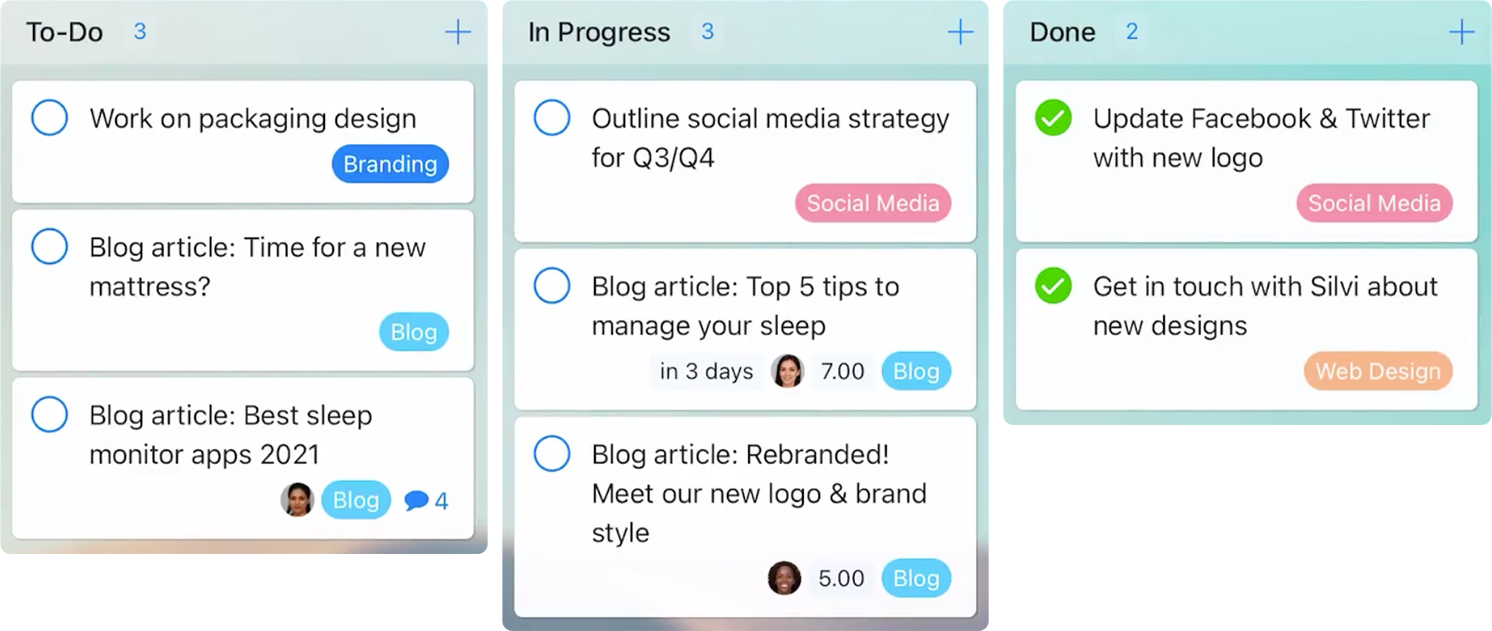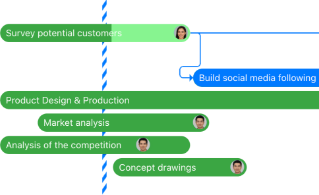
“It’s not the tools that you have faith in – tools are just tools. They work, or they don’t work. It’s people you have faith in or not.” – Steve Jobs
Every other day there is a new tool on the market that promises to deliver users to their utmost productive state.
Whether it’s a to-do list that allows you to cross items off with a magic wand or the Tesla equivalent of a spreadsheet, each and everyone vows to be the solution to your productivity woes.

For the past one and a half years, I’ve been dishing out tips, tricks, and tidbits to readers looking for ways to be more productive. And a huge chunk of it involved using tools to help them along the way.
A project management tool to prioritize tasks and coordinate resources.
A team chat app for a more efficient way of communicating within teams.
A time-tracking tool to monitor working activity and measure profitability.
So, you could say I’m well versed in this topic. But do I truly think that productivity tools actually make people more productive?
You may think that my answer is an instant yes, considering productivity tools are basically my bread and butter. But when posed with the question I actually had to stop and really think about it.
I also asked around to see what my colleagues thought.
None of them gave an instant “yes”. Which was a little surprising considering our product is a productivity tool.
While the majority did agree that productivity tools could make you more productive, the general consensus was that it wasn’t necessarily the tools themselves that did it. The people using the tools have a lot to do with it.
Having the best quality set of paintbrushes doesn’t make you the next Picasso. Nor does having a great computer and a code editor make you a great programmer. Every trade has its tools but those tools are nothing without the skills behind them.
In short, productivity tools can make you productive, but they can’t do it alone.
A Billion-Dollar Business
Productivity tools refer to programs and applications that make daily office life easier. Think about project management tools, time management systems, presentation programs, and communication software. These type of tools have revolutionized the way we conduct tasks and day-to-day business operations.
You’re probably using several right now, and you probably can’t imagine how things would get done if you didn’t have them.
What started out as an attempt to make office processes more efficient has turned into a lucrative business. The worldwide collaboration software market alone was valued at 8.45 billion US dollars in 2017.
If you do a search for any type of productivity tool, you will find a plethora of products that cater for any industry, any team size, any budget, and any goal. Each vying for your subscription with the promise that their product will be the one that changes your life and transforms you into the productivity superstar that you are aspiring to be.
So, if there’s a clear demand for these tools, surely it means they’re delivering on their promises?

Productivity Tools Are Useless on Their Own
Having a tool without the knowledge or expertise to use it is futile. It won’t make you more productive. If anything, it’ll make you frustrated and you’ll become unmotivated.
Being productive requires a mixture of tools and skills. On top of quality resources, you need the proficiency to know how to use them. Any tool worth having will come with tutorials, as well as a customer service team to help out. And on top of that, there are blogs, books, videos, and podcasts that provide information on processes, methodologies, and best practices.
Being informed about any product you use can ensure that you use it to its full potential. It can also help you to decide whether it’s a suitable tool for you.
“We all have a personal recipe for productivity. One person may need six cups of autonomy and just a pinch of collaboration. Another person may require heaps of sociability and noise, with just a teaspoon of occasional privacy.” – Neil Blumenthal
Every team has different goals, priorities, and ways to measure productivity. Where one tool works incredibly well for one team, it doesn’t necessarily mean it’ll do the same for another. You need something that will be suited to your habits and objectives.
Consider the ongoing Slack debate for example. By becoming a billion-dollar company within two years, you can’t deny the communication platform’s success and the number of users who love it. But that doesn’t mean it works for everyone. Amir Salihefendic, the founder and CEO of Doist, explains why the tool didn’t work for his team:
“This style of communication was especially problematic for a remote-first company like ours. How do you stay in the loop when earlier topics have already been discussed and are buried by the time you even wake up? It wasn’t healthy for our team, and it wasn’t helping us focus on the hard work that really moves projects forward.”

The Pros and Cons of Productivity Tools
Whether it’s a digital to-do list, time tracking software, or an online database, using productivity tools offers both benefits and disadvantages. Here are some of the more common ones:
Pros:
- Makes Collaboration Easier
Using a productivity tool that centralizes all your files and documents in one place offers a more practical approach to collaboration. You’ll no longer have to email and back and forth with your colleagues and upload files to collaborate on the same task or project.
- Streamlines Communication
Communication software is designed to make internal communication a more simple experience. Their instantaneous nature in sending and receiving messages makes them ideal for sharing information, ideas, and the general discussion quickly. More efficient than calling and sending emails, these communication tools create immediacy between colleagues and are especially great for connecting with remote employees.

Simplify your project communication and task management with our user-friendly project management software.
Sign up for free today!
- Simplifies Progress Tracking
Monitoring your project’s progress is made easier with a productivity tool such as task management or project management software. Details such as budget, resources, and deadline will be highlighted, allowing you to ensure you meet your deadline.
- Data Unlikely to Fall into the Wrong Hands
Most, if not all, productivity tools require a username and password to access them. These protection features reduce security risks and ensure your data doesn’t fall into the wrong hands.
- Enables Remote Work
Without productivity tools, remote work wouldn’t be possible. Online software has made it possible for employees to work from anywhere in the world. Video conferencing tools, team chat apps, and task management software means you no longer have to be in the office to get the job done.

Cons:
- They Can Be Very Distracting
Popular communication software such as team chat apps is notorious for being distracting. While the ease of communication has made collaborating on tasks and projects better, it’s provided with a hotbed for non-work related conversations as well.
- Minimize Interpersonal Skills
If you’re constantly using tools to communicate, it can reduce your inclination to talk to people face-to-face. As Ulrich Kellerer stated in a Forbes interview with Carol Kinsey Goman, “When it comes to effective business communication, over-reliance on technology at work can be a hindrance, especially when it ends up replacing face-to-face, human interaction.”
- Constant Updates
Many tools require regular updates in order to get the most out of them. And sometimes, these updates may come with a price tag. Then, you may run into the issue where the upgraded version is more cumbersome than the older version, leading to employee hesitation.
- Employee Hesitation
Implementing software means everyone has to learn how to use it and not everyone has the same level of technological skills. Having to learn a new tool can be intimidating, especially if you think that the current one you use does the job just fine. If something’s not broken, then why should we attempt to fix it, right?
- It Costs to Maintain Them
While many tools come with a free plan option, they are always limited in comparison to paid plans. Whoever said that the best things in life came free was obviously not talking about productivity tools.

Weighing in on the pros and cons, you can see how there are factors that help increase productivity and ones that do the complete opposite. This goes to show that it’s not the tool that determines whether productivity is a given, but how the tool is used.
Final Thoughts
Productivity tools aren’t going anywhere. As long as there is the need to digitize tasks and processes, there’s going to be the need for an application to do it. The success of the industry also indicates that the production of tools isn’t likely to slow down.
But remember, having the tool alone can only get you so far.
Without the knowledge and skills to back it up, your tools are useless. To be truly efficient and effective, you need the knowledge to recognize which tools are a suitable fit and, of course, the skills to know how to actually use them properly.
Do your productivity tools make you more productive?
Cheers,
Dinnie and the Zenkit Team





Leave a Reply